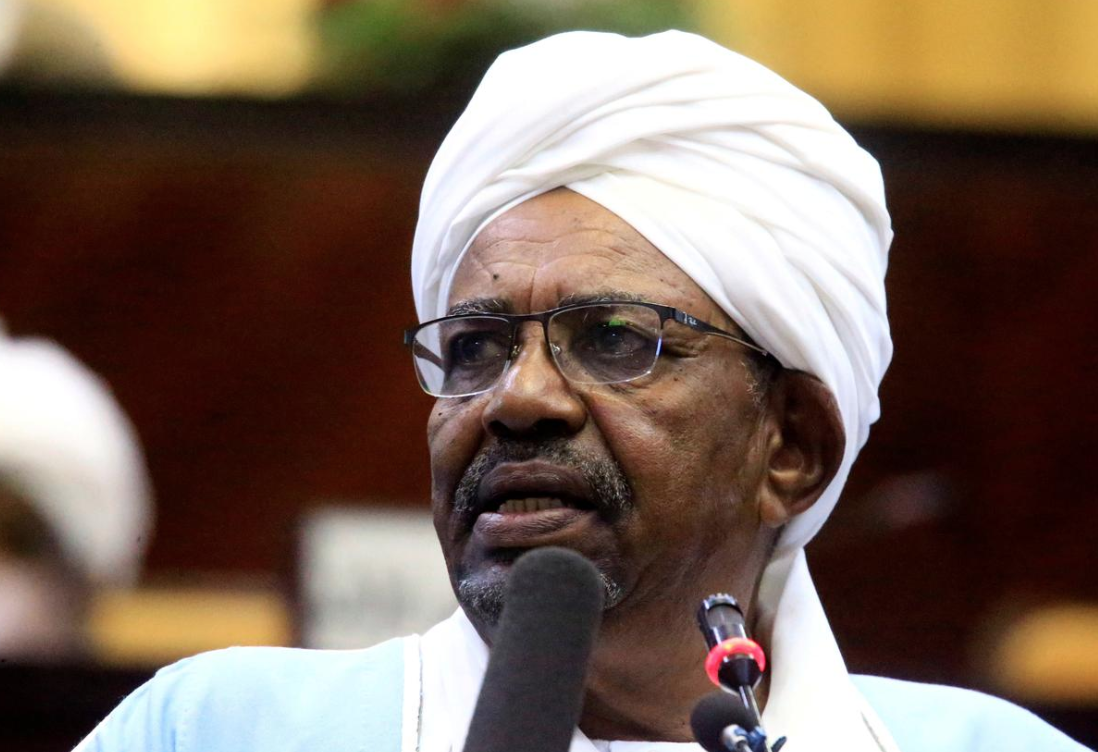
KHARTOUM (Reuters) – Sudan’s public prosecutor on Thursday ordered ousted President Omar al-Bashir to be interrogated on charges of money laundering and financing terrorism, as hundreds of thousands of protesters joined a sit-in to demand the army give way to civilian rule.
Bashir was removed by the military on April 11 after months of demonstrations against his 30 year rule. He is also wanted by the International Criminal Court in the Hague for war crimes over the conflict in Sudan’s Darfur region.
The prosecutor’s statement said other unidentified senior figures would also be investigated for financial crimes.
The huge crowd that gathered on Thursday outside the defense ministry was answering a call by an alliance of activists and opposition groups to join a protest march through Khartoum.
The Declaration of Freedom and Change Forces (DFCF) alliance said on Thursday it had sent the Transitional Military Council (TMC) set up after Bashir’s ouster a draft constitutional document containing its vision for the transitional period.
Protesters and activists have been negotiating with the TMC to form a joint civilian-military body to oversee the country until elections. But the parties are deadlocked over who would control the new council and what the features of a transitional government would be.
The constitutional draft, seen by Reuters, outlines the duties of a sovereign transitional council which the opposition groups hope will replace the TMC, but does not specify who would sit on it. It also outlines the responsibilities of the cabinet and a 120-member legislature.
Opposition groups say the ruling council must be civilian-led and have promised to maintain a sit-in outside the Defence Ministry until their demands are met, but the TMC has shown no sign of willingness to relinquish ultimate authority.
At a televised news conference, a spokesman for the DFCF said it expected a response from the military to its constitutional draft within two or three days. The TMC acknowledged receiving the draft and said in a statement that this step pushes dialogue forward.
Reporting by Khalid Abdelaziz; Writing by Nadine Awadalla; Editing by Andrew Heavens and Nafisa Eltahir
FILE PHOTO: Sudanese President Omar al-Bashir delivers a speech inside Parliament in Khartoum, Sudan April 1, 2019. REUTERS/Mohamed Nureldin Abdallah/File Photo



